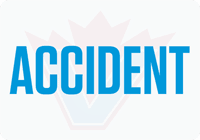Four people a day are dying from overdoses and contaminated drugs

THE British Columbia government is launching a community crisis fund and scaling up rapid access to addiction treatment as part of a provincewide plan to stem the overdose emergency and help save lives, Premier John Horgan announced on Friday.
“Today we are taking important steps to save lives, end stigma, get communities and people the help they need, and stop addiction before it starts,” Horgan said. “People are losing their loved ones. Families, communities and front-line workers are carrying an enormous load and it’s time to give them the support they need.”
B.C.’s overdose crisis was declared a public health emergency in 2016. On average, four people a day are dying from overdoses and contaminated drugs. To combat this crisis, the provincial government is taking a cross-government approach, led by the new Ministry of Mental Health and Addictions, a dedicated team whose first priority is to save lives.
“We are responding to this devastating tragedy with compassion, understanding and urgent action,” said Minister of Mental Health and Addictions Judy Darcy. “Overdoses can happen in any community, in any corner of our province. This is why we’re reaching out to partners in business, labour, community organizations and local government as we escalate our response. It will take all of us working together to reach people who need help and solve this crisis.”
The new actions focus on harm reduction, outreach and help for people who need it the most, as part of a government-wide effort to combat the crisis that was allocated $322 million in new funding in the recent budget update. Additional measures will be implemented in the coming months, as action plans are finalized. The new measures announced on Friday include:
- Community crisis innovation fund: To support nimble, innovative, community-based actions with an immediate impact on the ground, the government will introduce a new community crisis innovation fund. The fund will be available to introduce measures, such as targeted community-based prevention or early-intervention programs, or innovative harm-reduction and treatment approaches to keep people safe and support people seeking help.
New funding: $3 million in 2017-18 and $6 million each year in 2018-19 and 2019-20. - Scaling up rapid-access community treatment: To make sure that help is available when people are ready to start on a path to recovery, health authorities are scaling up rapid access to medication treatments for opioid addiction. They are expanding the hours of and opening new addictions clinics in Vancouver, Burnaby, Chilliwack, Abbotsford, Mission and Langley. Clinics in Surrey and Maple Ridge are now also offering faster, easier access.
New funding: additional funding details are still being finalized on expanded access to opioid addiction treatment under the $322 million investment, including rapid-access addictions clinics and specialized substance use hubs in the regions most affected. - Broader access to no-cost naloxone kits: To make kits more widely available than ever, the Take Home Naloxone Program is working with the B.C. Pharmacy Association to establish new distribution sites at community pharmacies throughout the province. British Columbians who use opioids or are likely to respond to an overdose will be able to get free kits at pharmacies by the end of the year. More naloxone training opportunities and additional new distribution locations around the province are also being planned.
New funding: $2 million each year in 2017-18, 2018-19 and 2019-20. - Support for those on the front lines: To provide ongoing support for first responders and people working to save lives, the government has allocated sustainable annual funding to support the work of the newly established Mobile Response Team. The team provides training, education and crisis response to support the mental and emotional health of staff and volunteers of community-based organizations responding to multiple overdoses.
New funding: $1.7 million each year in 2018-19 and 2019-20. - Public awareness campaign: To expand the reach of a new public awareness campaign, the government is establishing partnerships with WorkSafeBC, B.C. Restaurant & Food Services Association and BC Building Trades Council ― and others to come on board in the near future. The campaign will be launched in the coming weeks, with a particular focus on reaching men aged 30 to 60, the group most at risk of overdose, and reducing stigma about addiction. The partnerships are designed to create new, targeted avenues for building awareness on how to stay safe and where to reach out for support.
New funding: $2 million in 2017-18 and $2.37 million in 2018-19 and 2019-20.
Action is also being taken to protect public safety and cut off illegal fentanyl supplies. $31.3 million has been allocated over three years to critical enforcement and public safety initiatives, including:
- New dedicated anti-trafficking teams within the provincial RCMP and Combined Forces Special Enforcement Unit (CFSEU-BC), with additional officers and support staff. This puts more boots on the ground to go after, arrest and prosecute dangerous and violent drug traffickers to disrupt the drug supply line in communities.
- Resources for all police agencies for enforcement activity against organized crime importers and traffickers, through the province’s gang unit (CFSEU-BC), including more funding for projects that specifically target traffickers, to stem the flow of fentanyl into B.C.
- Increased support for police-based outreach in their communities and funding for multidisciplinary approaches to bring together mental health, social service and police agencies to proactively reach people who are seen to be of elevated risk.
- Additional funding for the BC Coroners Service to expand the Drug-Death Investigations Team, to help resolve backlog and meet the significant increase in workload and lab testing. This will provide timely, accurate data to inform new strategies in this public health crisis.
The BC Coroners Service has reported 876 illegal drug overdose deaths in B.C. in 2017 to date, with fentanyl detected in 81% of cases.









